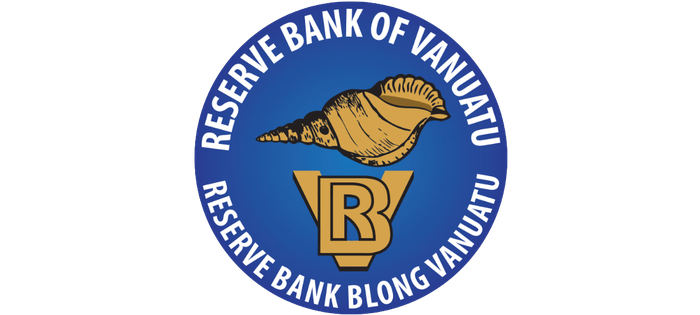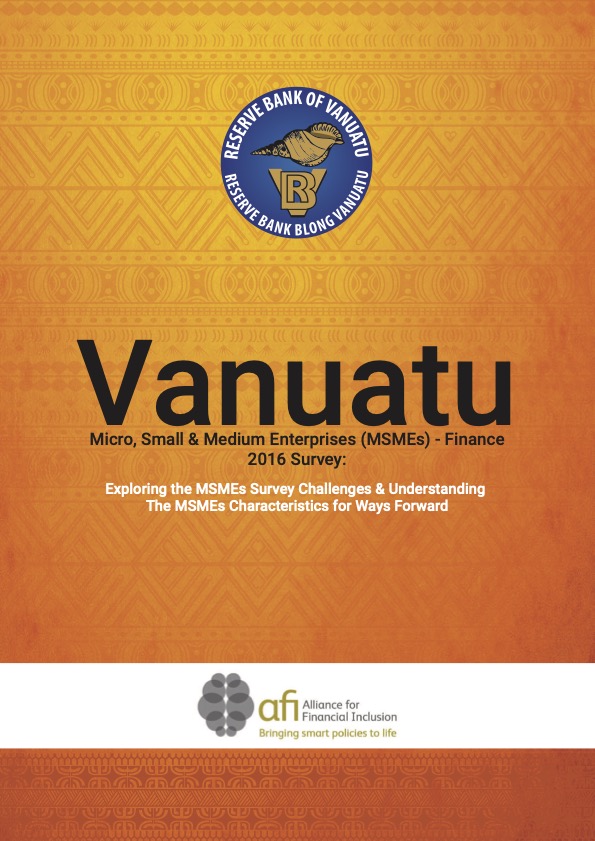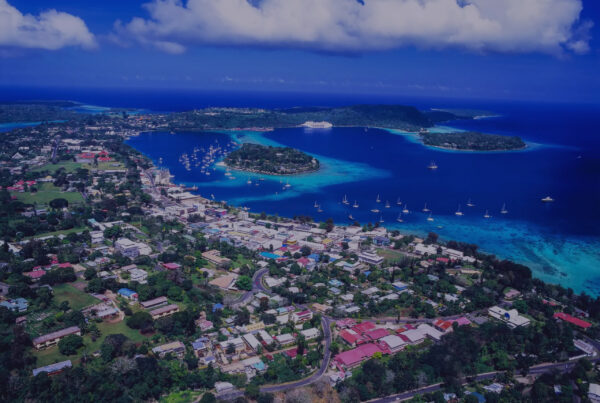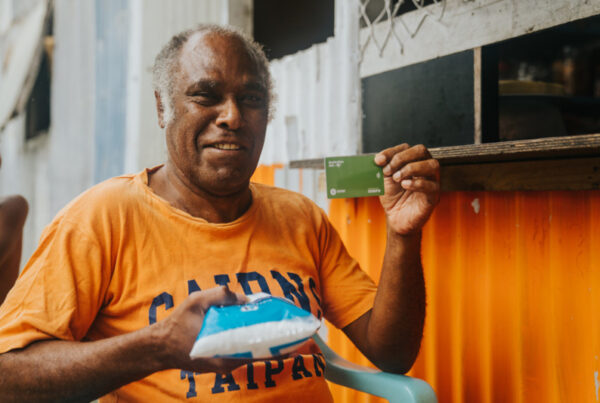Micro, Small & Medium Enterprises (MSMEs) – Finance 2016 Survey: Exploring the MSMEs Survey Challenges & Understanding The MSMEs Characteristics for Ways Forward
Executive summary
MSMEs can be an important engine for economic growth, job creation, and if well supported, can contribute to poverty alleviation and the improvement of living standards of the Ni-Vanuatu. In the past, data deficiencies on usage and access to financial services by MSMEs have constrained the development of a more vibrant MSME sector in Vanuatu. This survey captured information on access and usage of financial services and challenges faced by the MSMEs in Vanuatu from their perspective. It followed the completion of the financial inclusion Demand-Side Survey in the first half of 2016, which measured access and usage of financial services from the perspective of the adult household sector in Vanuatu.
The survey was conducted by the RBV during October-November 2016. It is nationally representative with respondents drawn from the provincial rural areas of Torba, Sanma, Penama, Malampa, Shefa, Tafea and the urban areas of Luganville and Port Vila. The target respondents consisted of the list of the 2016 registered businesses at the Department of Customs and Inland Revenue in Luganville and Port Vila and business registry listings in each provincial council. Due to data limitations of business listings in provincial councils it was not possible to stratify the analysis to different MSME components. Survey empirical findings will provide input to formulating medium to long-term policies to improve access to MSME financing and development as a complement to the Government of Vanuatu’s overarching agenda in business and MSME development. It will also set the ground work for future research into the MSME sector in Vanuatu.
In summary, the following thematic areas can be derived from the survey results:
Access to informal sources of finance
A high percentage of businesses in Vanuatu accessed informal financing sources for business startups. The survey revealed that 68 percent of businesses in the urban centers used informal savings1 for businesses start-ups and 19 percent used commercial bank loans. Similarly, in the rural areas, 81 percent used informal savings, and only 7 percent of businesses used commercial bank loans. The percentage of businesses accessing finance from other formal financial institutions and informal sources is insignificant. Policy makers will want to investigate the underlying issues giving rise to the low usage of formal institution funding for business startups among businesses in urban centers and their preference for informal sources, given that the sector remains largely unsupervised in Vanuatu.
Participation of marginalized groups
The participation of women and youth in businesses is lower than among men. Males dominate the MSME sector with 60 percent ownership. Twenty (20) percent of the total respondents are women and 12 percent are youth entrepreneurs. Furthermore, a larger portion of youth with business ownership are women. A high number of women and youth entrepreneurs are engaged in the informal rather than formal MSMEs.
Access to business financing
Access to finance for business financing is perceived as a major problem in Vanuatu. Of the total MSME respondents, 22 percent indicated they have applied for a business loan over the last 12 months, relative to a much higher proportion of 35 percent who have not, and 29 percent who considered it is not applicable to their business. Among the informal business sector, only 10 percent have applied for a loan, while over 50 percent indicated it was not applicable to their business, and 28 percent did not apply for other reasons. Whilst the majority of businesses indicated that the main banking product/service that they are in need of is loans and savings, they also indicated high interest rates to be the most limiting factor to accessing external financing. Insufficient collaterals or guarantees and financial institution processes are also cited as limiting factors. Given that access to finance plays an important role in business development, investment and innovation, ways must be found by policy makers and service providers to improve access to businesses finance.
Usage of business financing
Inadequate use of loans from commercial banks and other financial institutions by businesses. The survey found that only 26 percent of formal MSMEs had applied and been issued a loan from a commercial bank over the past 12 months, 4 percent of businesses applied but were rejected, 1 percent applied and were issued only part of it and did not apply for other reasons, respectively. However, 67 percent of formal businesses did not apply for a commercial bank loan over the past 12 months. Only 9 percent of informal MSMEs have applied for a loan from commercial banks and received everything, while 80 percent did not apply. A similar trend was seen in other financial institutions. Thirteen (13) percent of informal MSMEs applied for and were issued loans from other financial institutions over the past 12 months even though 85 percent did not use the facility or said it was not applicable. By contrast, 8 percent of formal MSMEs applied for loans from the other financial institutions and got everything, while 2 percent did not apply for other reasons.
Infrastructural support for service delivery
Lack of infrastructure, inefficient government service delivery, competition from cheap imported products/services, small market size and lack of support services for business are key problems faced by the MSME businesses sector. More than 50 percent of respondents identified lack of infrastructure, inefficient government service delivery and lack of support services for business development as key problems, respectively. In addition, 34 percent identified competition from cheap imported products/services and small market size as the key hindrances in business growth, in that order. Furthermore, business insurance cover is scarce outside the urban centers in Vanuatu making them vulnerable and less resilient to natural disasters. These problems present further dimension to business risk and the cost of doing business in Vanuatu and further steps are needed to address them through appropriate policies and dialogue between policy makers and stakeholders.
(…)






